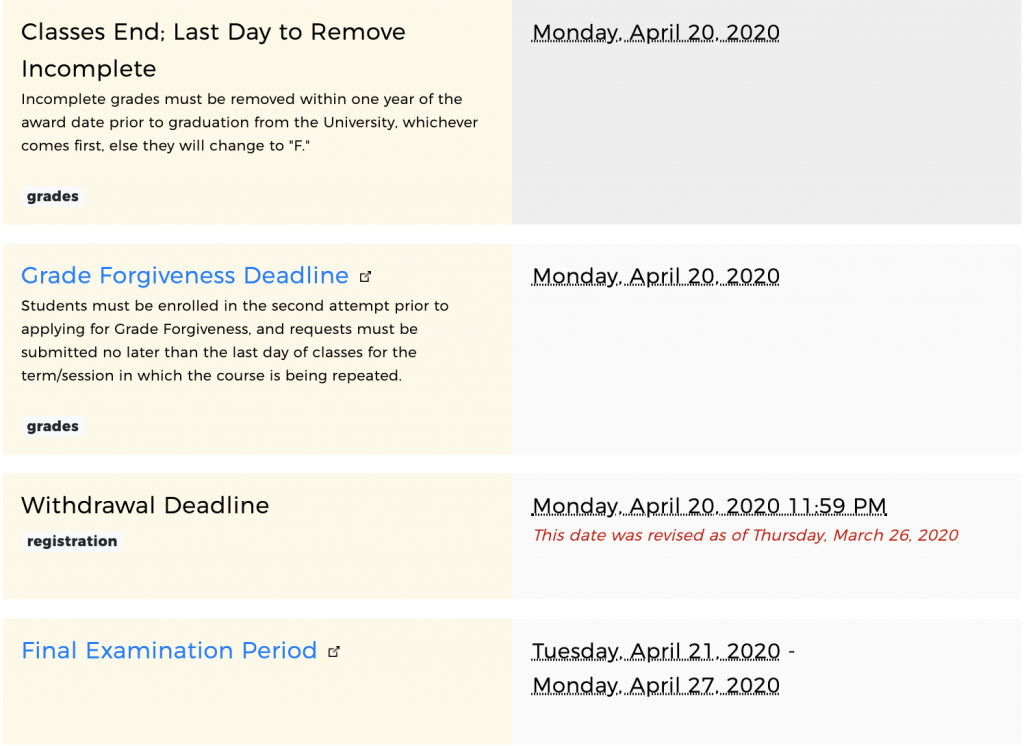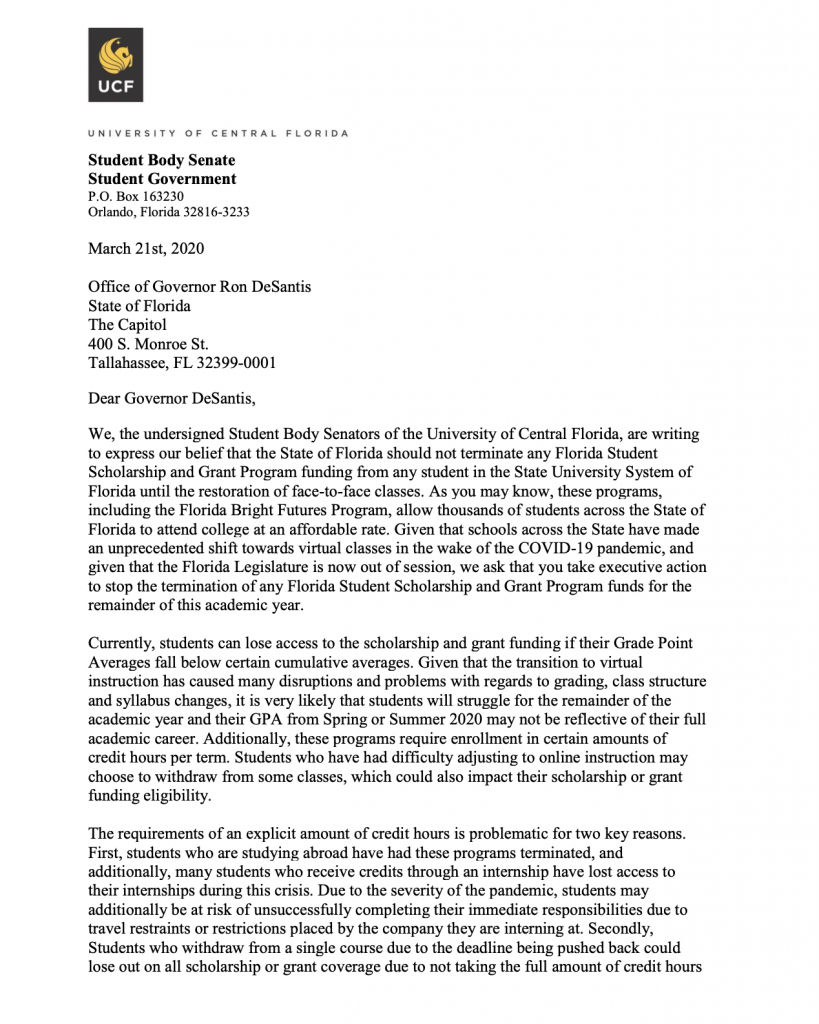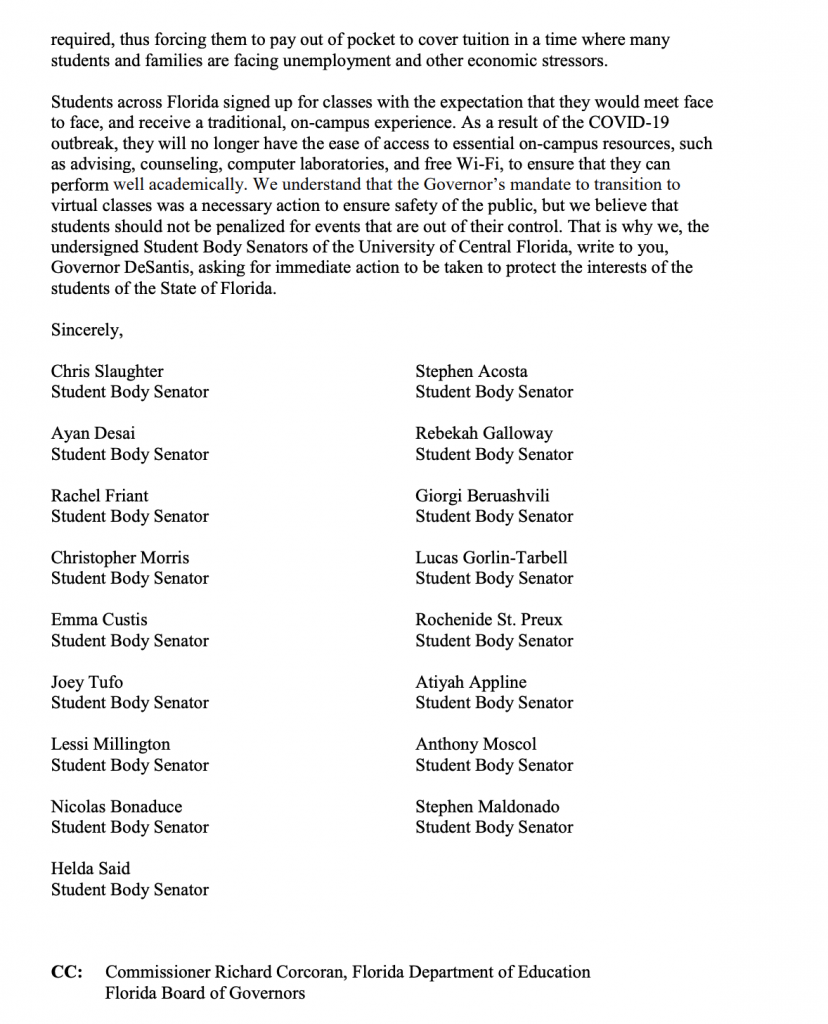The unprecedented effects of coronavirus — a historic pandemic — will be represented by a small annotation on a student’s transcript if the optional pass-fail grading system is chosen.
“Option was offered this spring semester because of the pandemic.”
UCF announced it will allow the optional pass-fail grading system Wednesday afternoon.
The university announced on Thursday the withdrawal deadline would be moved — for the second time this semester — to April 20 to allow students more time to consider options.

“We will emerge from this COVID-19 crisis,” UCF interim President Thad Seymour said in a Wednesday statement. “I know the same grit and determination that resonates with all of us in Knight Nation will help us get through the challenging times ahead.”
In a letter to faculty, interim Provost Michael Johnson said students will be able to elect the optional pass-fail system in any course and faculty will continue to assign grades as outlined in their syllabus.
He said faculty will submit grades to be converted by the Registrar’s Office to either satisfactory or unsatisfactory for students selecting this option.
“The grade designation will appear on their transcript with an annotation that the S/U option was offered this spring semester because of the pandemic,” Johnson wrote in the statement.
Johnson said the pass-fail system — known as satisfactory-unsatisfactory grading — may not be wise for a student in all circumstances.
- Undergraduate and graduate students may opt into satisfactory/unsatisfactory grading, or S/U.
- Students may choose during a yet-to-be-determined time in April.
- Students may choose course-by-course.
- S/U grades will have no effect on GPA.
- Courses with “S” grades will count toward degree requirements, but not necessarily toward majors
- For example, a “B” is required in a certain course in an undergraduate major.
- For students who opt into S/U grading:
- Undergraduate grades:
- Letter grades A through C = Satisfactory (S)
- Letter grade C- and below = Unsatisfactory (U)
- Graduate grades:
- Letter grades: A through B- = Satisfactory (S)
- Letter grade C+ and below = Unsatisfactory (U)
“For example, there may be issues associated with financial aid, meeting major requirements, etc. We are developing information about these matters to help students decide, and to help advisors answer student questions,” Johnson wrote in the letter to faculty. “It will be important for students to discuss the option with advisors.”
Johnson said the finalized information for students will be available soon.
Certain courses may be excluded from this, along with the College of Medicine’s medical degree program, Johnson said.
UCF Student Government Senators sent a letter to Gov. Ron DeSantis on Saturday urging him to take executive action on Florida Scholarship and Grant programs so no students lose funding as a result of the transition to online classes.
“Given that schools across the State have made an unprecedented shift towards virtual classes in the wake of the COVID-19 pandemic, and given that the Florida Legislature is now out of session, we ask that you take executive action to stop the termination of any Florida Student Scholarship and Grant Program funds for the remainder of this academic year,” the letter reads.
Johnson said in the letter more details about how students can opt-in, deadlines and pros and cons will be available to students soon.
“The opt-in choice for students recognizes the very difficult time that they and all of us face and upholds UCF’s commitment to student success,” Johnson wrote. “I deeply appreciate the adjustments you have made in short order to keep advancing teaching and learning at UCF while navigating the personal challenges of your own.”
On March 11, the Florida Board of Governors directed all state universities on spring break to remain at home for an additional two weeks.
UCF moved to remote instruction on March 16. On March 17, the Board of Governors announced the remainder of the spring semester would be remote learning, and spring commencement would be canceled to minimize health and safety risks to the UCF community.
On March 19, the university announced remote learning would continue into the first half of the summer term.
“Ultimately, we hope giving you this option will help ease some of the academic stress you’ve faced with the transition to remote learning,” Seymour said.









